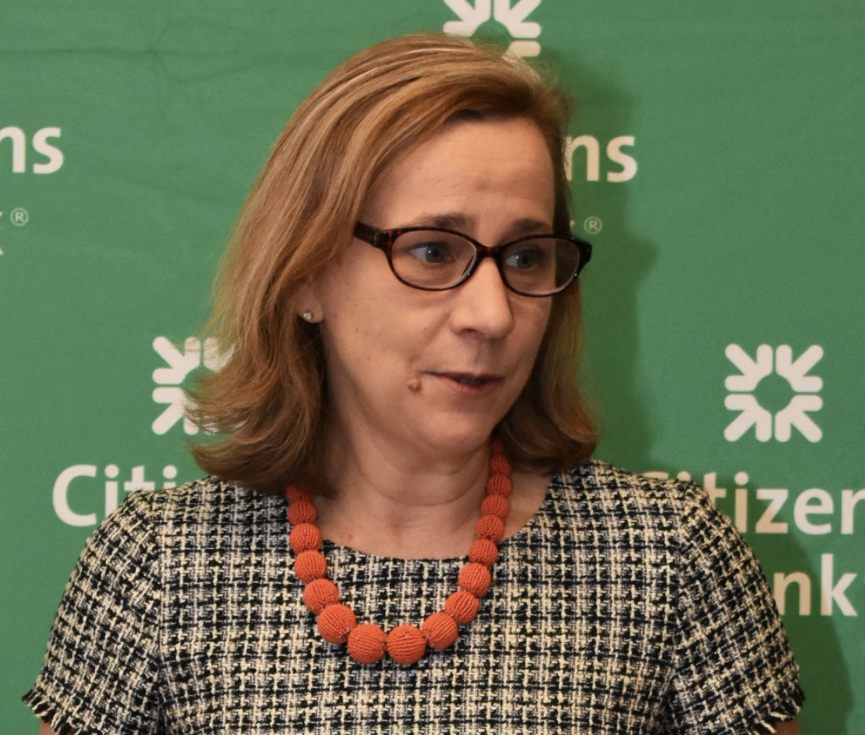Manchester High School students dropped out at an alarming rate under former Manchester Mayor Joyce Craig’s watch, but that isn’t stopping the state’s largest teacher’s union from backing her bid for governor.
According to data from the Manchester School District and the state Department of Education, while Craig was in office, the district’s drop out rate was more than four times higher than the state average. And about one in four students failed to graduate each year, much higher than the state average.
But the NEA-New Hampshire is still on board. Union president Meg Tuttle told her members Democrat Craig will spend more on public schools, get them pay raises, and end New Hampshire’s Education Freedom Account (EFA) school choice program.
“New Hampshire’s students and educators deserve a governor who will have their backs. That means adequately funding our public schools, fighting for pay raises for educators, and making sure every child in our state can thrive,” Tuttle said.
Granite State taxpayers are currently spending an average of more than $20,000 per public school student, higher than many private schools in the state.
Tuttle also praised Craig for pledging to “put an end to the state’s current voucher scheme that is gouging taxpayers,” a reference to the EFA program. With Republican Kelly Ayotte promising to keep the EFA program going, Tuttle and the teachers unions see Craig as the obvious choice.
But what about her record on student achievement? How did Manchester students perform while Craig was mayor?
Craig took office in January 2018 as both mayor and chair of the Manchester School Committee. In 2019, Manchester reported a total graduation rate 17 percent below the statewide average, 73.8 percent vs. 88.42 percent.
And while the state’s dropout rate was 2.74 percent, Manchester’s was more than four times higher at 12.44 percent.
Under Craig’s tenure, the numbers got worse.
Manchester reported graduation rates of 73.01 percent in 2020. The following year, 2021, was directly impacted by the COVID pandemic, and the graduation rate plummeted to 67.85. But even when the rate rebounded, it was still well below the state average of around 88 percent. It was 72.23 in 2022, and 72.97 percent in 2023, the most recent year of data available.
The dropout rates in 2020 were 10.45 percent, 13.26 percent in COVID-plagued 2021, 11.84 percent in 2022, and 12.99 percent in 2023. The state averages for dropout rates in those same years ranged from 2.4 to 3.4 percent.
On top of overseeing an expensive public school district that failed students and their families, Craig raised city taxes several times as mayor, and repeatedly tried to override the tax cap. Raising taxes to spend on public schools is part of Craig’s platform.
Craig, who has not taken the no income tax pledge, recently admitted she would push to bring back an income tax on interest and dividends if elected governor. She says that, despite record spending on public schools, New Hampshire needs the tax to spend even more.
Craig’s tax increase does have at least one fan in New Hampshire politics. U.S. Sen. Jeanne Shaheen told radio host Jack Heath on Tuesday raising taxes is a solid idea.
“Well, nobody in New Hampshire likes taxes,” Shaheen said. “But if we want to fund our schools, if we want to have roads and bridges that we can drive on, if we want to have safe commerce, if we want to provide health care, then we have to raise revenue.”
Shaheen first won the governor’s office in 1996 by signing the no-new-taxes pledge. But she raised taxes as governor, which haunted her in her first failed bid for the U.S. Senate.
Ironically, Shaheen had to answer for her record on education in 2002. New Hampshire’s abysmal dropout rates under her watch helped sink her run.

